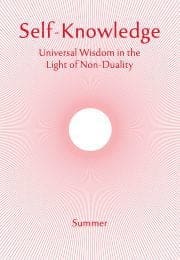The Humorous Dimension
The scriptures of the world are not generally thought of as humorous, either in the teachings they impart or the narratives and parables they unfold. On the contrary, they are more likely to be revered in a spirit of seriousness and solemnity. Yet the sense of humour is a part of human nature, and it would be strange if a humorous dimension were entirely absent from texts whose real subject matter is our higher nature and potentialities. This is not the case, and, with guidance, we may learn to recognise and enjoy a lightness of touch which prompts, at the least, a widening smile, if not an audible chuckle.
If we turn first to the Sanskrit texts, who can fail to be discreetly amused at the depiction of Rama’s armies as comprising, not men, but monkeys and bears. Similarly, the stories of the infancy of Krishna may, for countless devotees, transmit delight mingled with the laughter that usually ensues when toddlers are approached by friendly and warm-hearted adults. Krishna wants cream and butter, and regards the moon as a vast dairy; but alas, the moon only appears when it is dark. When his mother explains this fact, Krishna promptly closes his eyes, and pleads: ‘Now it is dark mother. Give me the moon.’
Even staid philosophical texts are sometimes seasoned with illustrations which contain a humorous dimension. This applies to the story of the ten men who crossed a river and grieved at the loss of one of their group—because everyone forgot to count himself. We are not expected to regard the tale as gloomy, but to taste something of the laughter which accompanied the ensuing realisation that ‘I myself am the tenth.’
The ancient Chinese traditions, especially those of Taoism, are unashamedly amusing in many of their teaching stories, as when a man approached a teacher who asked him who was the crowd of people he had brought with him. The man spun round, for he had travelled alone; the crowd was the crowd of restless thoughts that was the real source of his bondage, and, when transformed through training, would prove to be the vehicle of his release.
The mildly anarchical strand in Taoism is well reflected in a poem by Han Shan, where the two protagonists compete for the last laugh:
In the house east of here lives an old woman.
Three or four years ago she got rich.
In the old days she was poorer than I.
Now she laughs at me for not having a penny.
She laughs at me for being behind.
I laugh at her for getting ahead.
We laugh as though we’d never stop,
She from the east and I from the west.
We find the same openness to all levels of experience in the writings of the mystics of Islam. The whimsy that often overpowers our judgement is illustrated in the story of the man who happened to notice the smooth neck of a Sufi who was sitting by the river, and who conceived an irrepressible urge to give that neck a good slap—with disastrous consequences. The author, Rumi, does not hesitate to call up the anecdotes and tales of his predecessors if they transmitted a good spiritual point, as in the story of the painting contest, which was won by the team who painted nothing, but polished the wall so that all the other paintings were reflected in it, but with greater depth.
Every story which bears on Self-knowledge is, in fact, our own story. As Rumi commented in the course of his rendering of the biblical account of Moses and Pharaoh: ‘You may think these tales relate to people of long ago—but both Moses and Pharaoh are within you.’


